Coping Strategies for Scam Victim Trauma Survivors
Trauma Is Deeply Rooted and Can Negatively Affect The Lives Of Scam Victims
PTSD is a psychological disorder that is brought on by the experience of a traumatic event.
Most commonly, war veterans experience this, but it can also come on as a result of any traumatic event. Some other instances that may cause this are natural disasters or the death of a loved one. Romance scam victims commonly experience significant trauma.
What is Trauma?
When an adverse event causes harmful effects in our day-to-day lives, this is called trauma.
In some instances, trauma is not very severe. An example of this would be getting into a heated argument with a loved one or being involved in a car accident that does hardly any damage if any at all.
Trauma can also be very severe. For people who go through extreme instances of trauma, PTSD, and depression can result. The symptoms of these disorders that may arise are irritability, difficulty sleeping, nightmares, and flashbacks. But it can also be mental illness.
If you are experiencing issues with your mental health as a result of trauma, no matter how severe, there are many things you can do to combat your symptoms and make your life easier!
We Always Recommend
While SCARS Offers self-help programs, we encourage you to seek the help of professional local counselors or therapists If you are looking for local trauma counselors please visit https://www.psychologytoday.com/us/therapists/trauma-and-ptsd
Practice Calming Techniques
For those who struggle with trauma, anxiety is one of the top complaints. The good news is, you can implement calming techniques into your life so that you can control the hold your anxiety has on you.
If you can carve some time out in the evenings, consider drawing yourself a warm bath. Adding Epsom salts or a bath bomb with a calming aroma can heighten the sense of peacefulness, as well. Settle in with a good book and breathe deeply, making a conscious effort to relax all your muscles. Hopefully, with some time, you will be able to clear your mind and enjoy the moment.
If you aren’t a bath person or you just don’t have the time to set aside for a bath in the evenings, listening to music might work better for you. This is an excellent option for those with a busy schedule because it can be completed almost anywhere and doesn’t disturb those around you.
Make sure the music you put on has calming vibes. A nice classical tune with a slow tempo is a good recommendation.
Whatever you choose, remember to stay consistent! Calming techniques show the best results when they are added as part of your routine.
Happy Body, Happy Mind
Trauma has its own way of robbing its victims of all energy and will to be active. Even though it may sound like the last thing you want to do, exercise can be instrumental as you learn to cope.
Many shy away from exercise because it sounds like a chore, or they think it takes too much energy that they already have minimal amounts of. The good news is, neither of these assumptions is true!
If you find exercising to be boring, consider trying out a routine that is more on the fun side. For example, take a dancing class or go roller skating. These activities count as exercise, but you will hardly recognize it while you’re in the moment!
Although getting active does take energy to begin, in the long term it works to increase energy levels. The worst thing you can do is let your mental ailments keep you from having a more energetic and peaceful life!
Allow Yourself To Feel
After experiencing a traumatic event, you will notice a myriad of reactions that you may not have been expecting.
These can include feelings of being alone or like no one understands how or what you’re feeling. You could also experience bouts of confusion or anger. It is likely you will not understand why you’re feeling this way, and you may be tempted to ignore or distract yourself from these feelings.
In these moments of weakness, remind yourself that you must go through it to get through it. Pretending your problems don’t exist will do nothing to resolve them. Instead, you are only delaying the inevitable.
Trauma that causes PTSD and depression are progressive diseases, meaning that they almost never go away on their own. It is imperative to your mental health that you deal with your problems sooner rather than later. If you wait, your problems will only pile up and will be much more challenging to deal with after some time has passed.
Lean On Someone
You will need a strong support system – like the SCARS Support Groups – to get you through this chapter in your life. There is no shame in talking about what has happened to you or what you witnessed.
When you are feeling overwhelmed or alone, reach out to our groups or to someone close to you and tell them how you are feeling. You can use this time to vent or to ask for advice from your trusted person. Alternately, if you would rather talk about something else to get your mind off things, that will do as well!
Let the people close to you know what you are struggling with and how they can help. Too often, those who are going through issues suffer in silence until it is too late. Resist the possibility of becoming just another statistic and take full advantage of all the resources you have available to you.
Take Time For Yourself
The biggest mistake you can make after experiencing trauma is to try to take on too much too quickly.
It is essential to be gentle with yourself as you are going through this process. Speak positively to yourself and take a few extra days away from work. You won’t be regretful for giving yourself a few extra days even if you are ready to resume life but going back too soon can cause you further mental turmoil.
Even once you do return to life, as usual, effects of trauma usually come back in waves. You may go a few days or weeks without feeling much of anything, only to have those feelings rush back when exposed to a trigger. These repercussions can be just as crippling as the initial event.
Don’t push yourself too hard when you experience these problems. You don’t have to force yourself to get out of bed, much less get to work in the morning. Your mental health is worth its weight in gold. Furthermore, you won’t be of much use at work when you are struggling with symptoms like depression. PTSD is nothing to mess with!
It Will Take Time to Feel Better & Recover
The road to recovery is long and winding. It is not something that happens overnight or all at once.
Recovery is not a linear process. It happens little by little and can take months to years to feel normal again, depending on the severity of the trauma and your mental state.
It is normal to have an ongoing response to the trauma you have endured. Additionally, you may think you are done feeling certain emotions, just to have them pop back up randomly.
Be patient with yourself and remember good things take time. One day, you will be an expert at coping with your PTSD and depression. If that day is not today, keep persevering until it is!
Find a Distraction & Something Safe To Do
Our emotions normally begin very heightened but subside on their own with time. If this sounds like you, a distraction may be just the ticket to coping with your problems.
What you want to accomplish with this method is distracting yourself from the negative emotion you are feeling. If you are successful, you should be focused on a relaxing activity until your emotions have a chance to settle on their own.
Some examples of distractions you can implement are endless! Try reading a book, doing a 1,000-piece puzzle from start to finish, learning a new language, or writing in a journal.
Art therapy has also proven to be extremely helpful to those struggling with PTSD. This is because you can express non-verbal struggles through art that you wouldn’t otherwise be able to. The goal with this is not to make a masterpiece, but just to draw or doodle something that makes sense to you. Any medium of your choice will do just fine; there is no need to get fancy!
Volunteering & helping others is NOT the distraction you need. These are not suitable for someone in the early stages of trauma even if you want to do this. You can’t help others until you are far down the recovery path, plus this is a deep-seated desperation drive at work that needs other types of distraction.
Don’t Try to Go At It Alone
If nothing you are trying seems to be working, or if despite your best efforts you continue to be negatively affected by the reactions to your trauma, it may be time to consult a licensed professional.
Find professional trauma counselors or therapists here: https://www.psychologytoday.com/us/therapists/trauma-and-ptsd
Therapy is the best option for many of those who struggle with PTSD and depression because methods used here have medical studies to back them up. Additionally, a counselor or therapist can get to know you and help you to tailor a treatment plan that is entirely custom to you and your experiences.
There are only good things that can come from therapy with a professional. You can use these coping strategies in combination with the suggestions from your counselor or therapist. If you give it your all, you are sure to succeed!
Remember, our groups can help many, but there is no shame in finding more professional help! Just keep away from amateurs and anti-scam hate groups – trauma & recovery are not a game – they are your life!
TAGS: SCARS, Trauma, Coping, Recovery, PTSD, Depression, Psychology of Scams, Coping Mechanisms, Information About Scams, Anti-Scam, Scams, Scammers, Fraudsters, Cybercrime, Crybercriminals, Romance Scams, Scam Victims,
SCARS™ Team
Society of Citizens Against Relationship Scams Inc.
A Worldwide Crime Victims Assistance Nonprofit Organization
Visit: www.AgainstScams.org
Contact Us: Contact@AgainstScams.org
PLEASE SHARE OUR ARTICLES WITH YOUR FRIENDS & FAMILY
HELP OTHERS STAY SAFE ONLINE – YOUR KNOWLEDGE CAN MAKE THE DIFFERENCE!
The Latest SCARS Posts:
FIND MORE SCAM NEWS
«SCAMCRIME.COM»
JOIN US ON FACEBOOK
«CLICK HERE»
END
MORE INFORMATION
– – –
Tell us about your experiences with Romance Scammers in our
« Scams Discussion Forum on Facebook »
– – –
FAQ: How Do You Properly Report Scammers?
It is essential that law enforcement knows about scams & scammers, even though there is nothing (in most cases) that they can do.
Always report scams involving money lost or where you received money to:
- Local Police – ask them to take an “informational” police report – say you need it for your insurance
- U.S. State Police (if you live in the U.S.) – they will take the matter more seriously and provide you with more help than local police
- Your National Police or FBI « www.IC3.gov »
- The SCARS|CDN™ Cybercriminal Data Network – Worldwide Reporting Network on « www.Anyscam.com »
This helps your government understand the problem, and allows law enforcement to add scammers on watch lists worldwide.
– – –
To learn more about SCARS visit « www.AgainstScams.org »
Please be sure to report all scammers
on « www.Anyscam.com »
Disclaimer:
SCARS IS A DIGITAL PUBLISHER AND DOES NOT OFFER HEALTH OR MEDICAL ADVICE, LEGAL ADVICE, FINANCIAL ADVICE, OR SERVICES THAT SCARS IS NOT LICENSED OR REGISTERED TO PERFORM.
IF YOU’RE FACING A MEDICAL EMERGENCY, CALL YOUR LOCAL EMERGENCY SERVICES IMMEDIATELY, OR VISIT THE NEAREST EMERGENCY ROOM OR URGENT CARE CENTER. YOU SHOULD CONSULT YOUR HEALTHCARE PROVIDER BEFORE FOLLOWING ANY MEDICALLY RELATED INFORMATION PRESENTED ON OUR PAGES.
ALWAYS CONSULT A LICENSED ATTORNEY FOR ANY ADVICE REGARDING LEGAL MATTERS.
A LICENSED FINANCIAL OR TAX PROFESSIONAL SHOULD BE CONSULTED BEFORE ACTING ON ANY INFORMATION RELATING TO YOUR PERSONAL FINANCES OR TAX RELATED ISSUES AND INFORMATION.
This content and other material contained on the website, apps, newsletter, and products (“Content”), is general in nature and for informational purposes only and does not constitute medical, legal, or financial advice; the Content is not intended to be a substitute for licensed or regulated professional advice. Always consult your doctor or other qualified healthcare provider, lawyer, financial, or tax professional with any questions you may have regarding the educational information contained herein. SCARS makes no guarantees about the efficacy of information described on or in SCARS’ Content. The information contained is subject to change and is not intended to cover all possible situations or effects. SCARS does not recommend or endorse any specific professional or care provider, product, service, or other information that may be mentioned in SCARS’ websites, apps, and Content unless explicitly identified as such.
The disclaimers herein are provided on this page for ease of reference. These disclaimers supplement and are a part of SCARS’ website’s Terms of Use.
Legal Notices:
All original content is Copyright © 1991 – 2020 Society of Citizens Against Relationship Scams Inc. (D.B.A SCARS) All Rights Reserved Worldwide & Webwide. Third-party copyrights acknowledge.
SCARS, SCARS|INTERNATIONAL, SCARS, SCARS|SUPPORT, SCARS, RSN, Romance Scams Now, SCARS|INTERNATION, SCARS|WORLDWIDE, SCARS|GLOBAL, SCARS, Society of Citizens Against Relationship Scams, Society of Citizens Against Romance Scams, SCARS|ANYSCAM, Project Anyscam, Anyscam, SCARS|GOFCH, GOFCH, SCARS|CHINA, SCARS|CDN, SCARS|UK, SCARS|LATINOAMERICA, SCARS|MEMBER, SCARS|VOLUNTEER, SCARS Cybercriminal Data Network, Cobalt Alert, Scam Victims Support Group, are all trademarks of Society of Citizens Against Relationship Scams Inc., All Rights Reserved Worldwide
Contact the law firm for the Society of Citizens Against Relationship Scams Incorporated by email at legal@AgainstScams.org


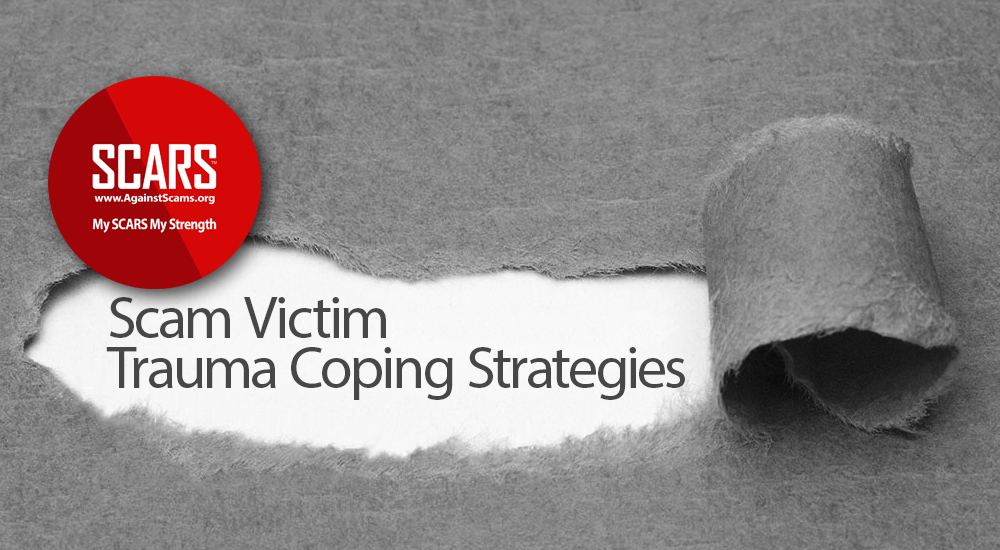
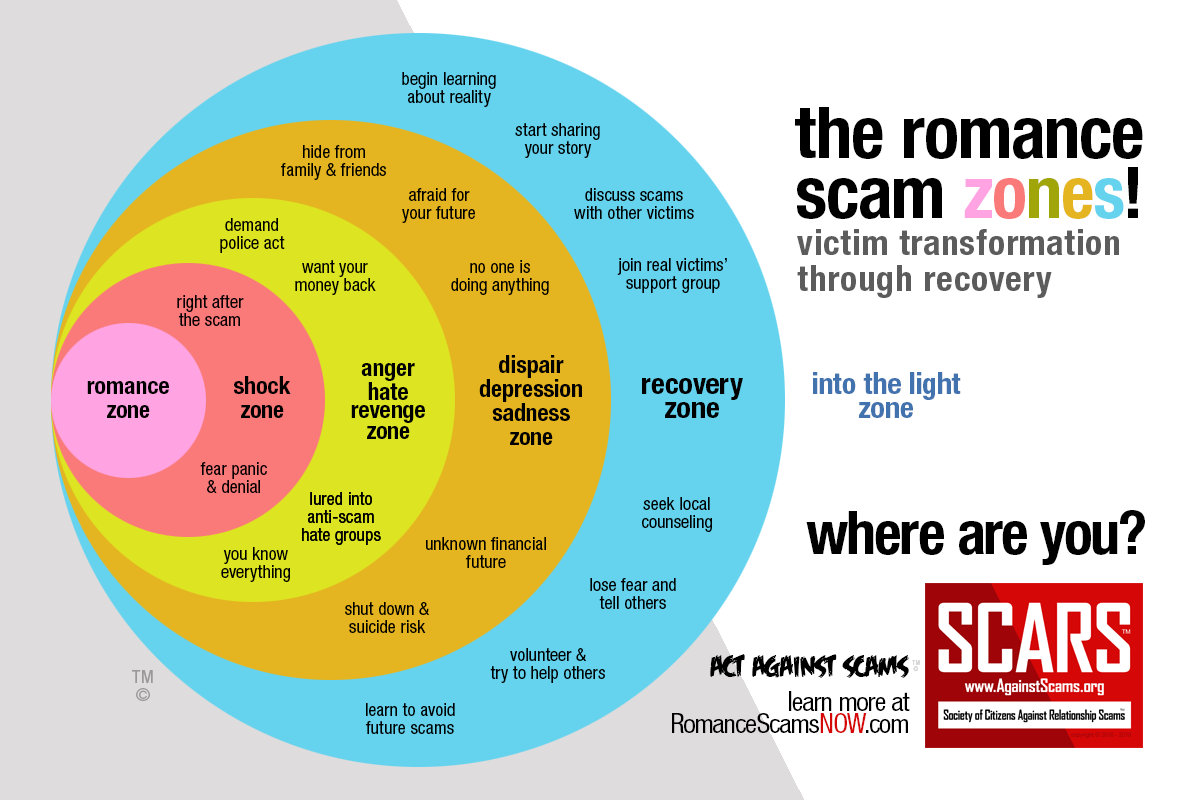
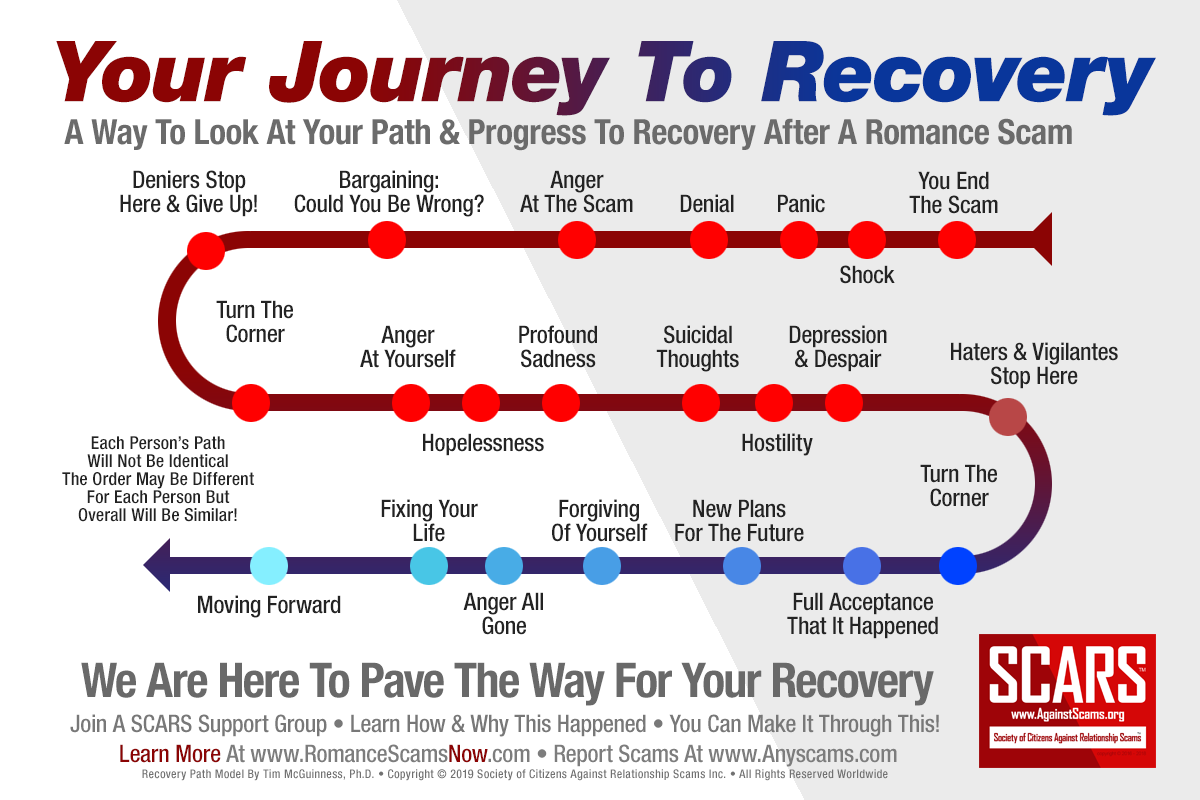


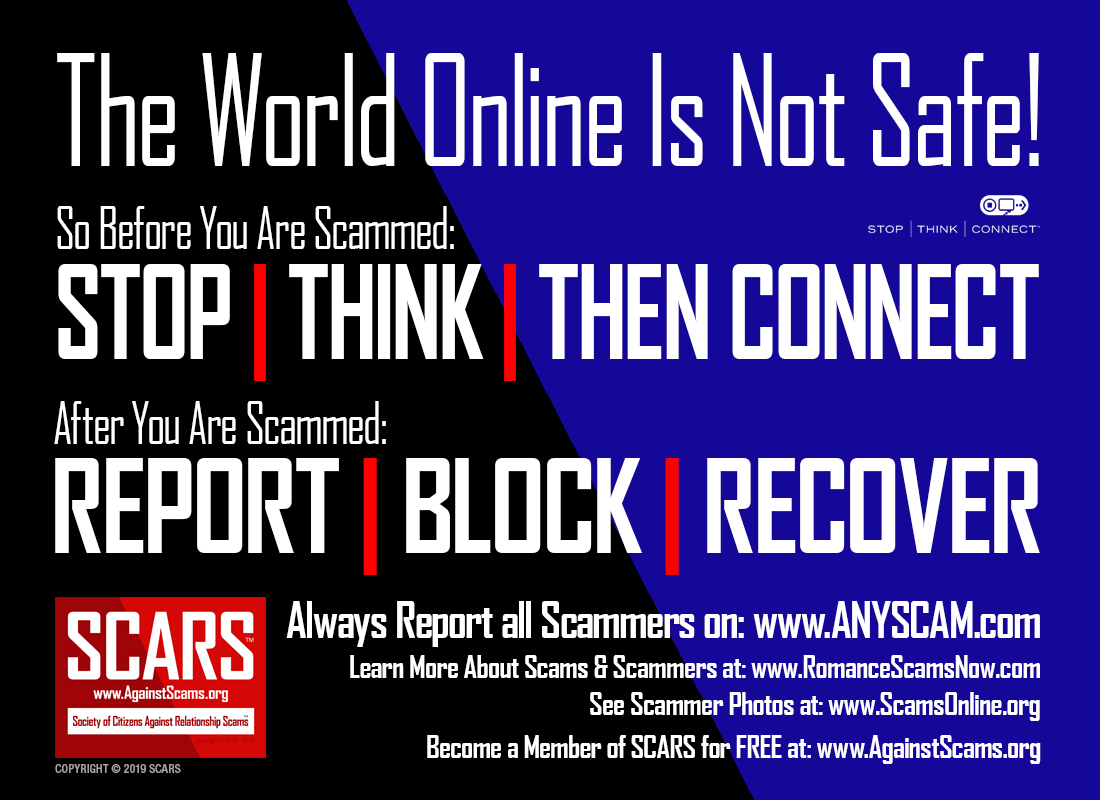





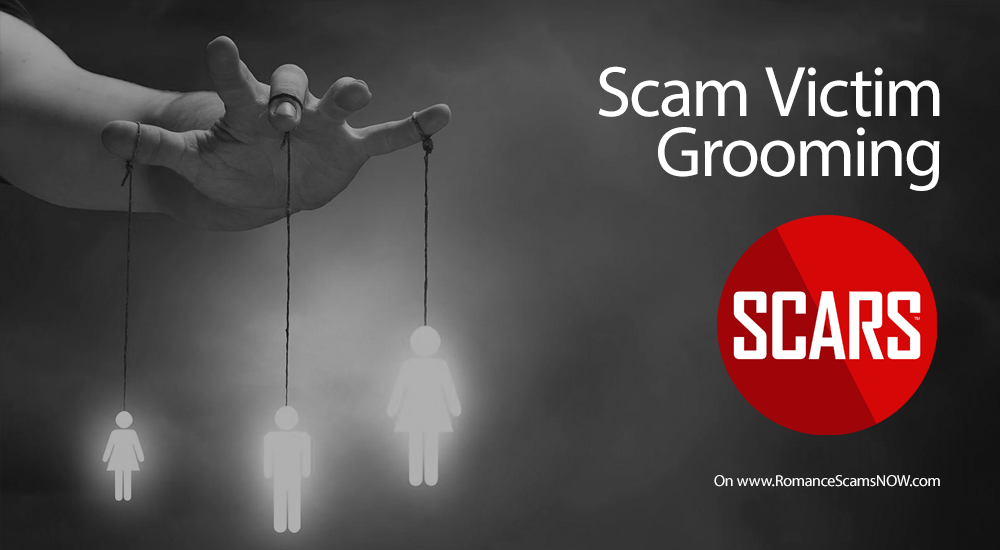
Please Leave A Comment - Tell Us What You Think About This!